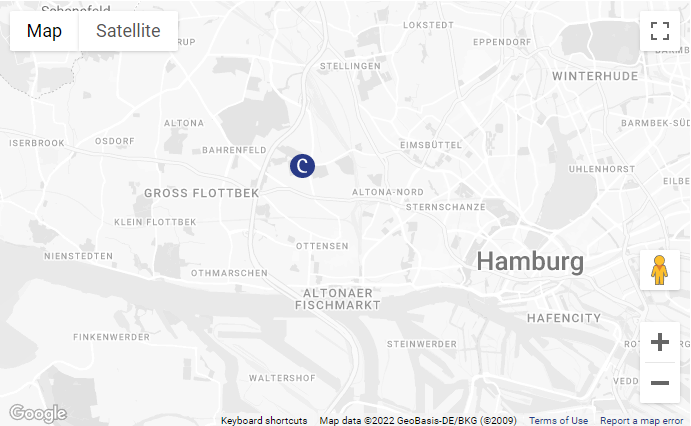Our 360-degree comprehensive protection through IT service continuity management / cyber response planning
IT Service Continuity Management (ITSCM) and Cyber Response Planning (CRP) are two important disciplines in the field of IT. Learn how these three crucial disciplines merge to form a comprehensive security strategy.

Nowadays, almost all critical business processes in a company depend on functioning IT services. Prolonged failure of IT infrastructures, IT systems or applications very often has fatal consequences for business operations and can even threaten the very existence of a company. Business continuity requirements are therefore always IT service continuity requirements.
The possible causes of IT failures are manifold and can be caused by various factors. These range from hardware failures, e.g. when important components such as servers or network elements fail, to faulty configurations and external threats such as cyber attacks.
IT Service Continuity Management (ITSCM) and Cyber Response Planning (CRP) or Cyber Incident Response Management (CIRM) are two important disciplines in the field of IT. They play a crucial role in ensuring the smooth operation of IT infrastructures, IT systems and applications, as well as in managing IT disruptions or cyber attacks. Together, they aim to maintain the continuity of IT services, protect your company data from unwanted access and enable a rapid response in the event of an emergency.
ITSCM focuses on ensuring the availability of your IT services in accordance with business requirements. The IT services required for your business operations are not interrupted, or only briefly interrupted, during the transition to IT emergency mode, and the economic existence of your company remains secure even in the event of a major incident. This includes, for example, the creation of restart and recovery plans and the implementation of redundant hardware components or network elements. In the event of an IT failure, alternative solutions can be activated immediately to ensure uninterrupted business operations.
Cyber Response Planning (CRP) complements ITSCM with a proactive approach to dealing with cyber attacks. CRP deals with the establishment and continuous improvement of Cyber Incident Response Management (CIRM). This involves developing strategies to respond quickly to cyber incidents, contain them and minimise damage. It includes detailed action plans and response schemes (playbooks) to enable quick and efficient action in the event of an IT security incident. An important element here is also the training of employees, because in the context of cybercrime, employees are not only a risk, but also the greatest asset. Well-trained employees are better able to recognise suspicious activities, report security incidents effectively and take the necessary measures to minimise damage. ITSCM and cyber response planning are two management disciplines that are closely linked and benefit from each other. The differences between ITSCM and CRP lie in their respective focuses and methods, but they complement each other perfectly to ensure comprehensive protection for your IT infrastructure, IT systems, and applications. Together, they aim to maintain the continuity of IT services, protect your company data from unwanted access and enable a rapid response in the event of an emergency. While ITSCM focuses on maintaining IT operations, ISM concentrates on protecting information as a corporate asset and CRP on responding to cyber incidents.
By implementing ITSCM and CRP, you send a clear signal of reliability to customers and contractual partners – even in the event of a critical IT incident.
The possible causes of IT failures are manifold and can be caused by various factors. These range from hardware failures, e.g. when important components such as servers or network elements fail, to faulty configurations and external threats such as cyber attacks.
IT Service Continuity Management (ITSCM) and Cyber Response Planning (CRP) or Cyber Incident Response Management (CIRM) are two important disciplines in the field of IT. They play a crucial role in ensuring the smooth operation of IT infrastructures, IT systems and applications, as well as in managing IT disruptions or cyber attacks. Together, they aim to maintain the continuity of IT services, protect your company data from unwanted access and enable a rapid response in the event of an emergency.
Consulting services
We work with you to develop solutions tailored to your individual requirements in this complex IT environment. In doing so, we naturally also consider the relevant interfaces to other management disciplines such as business continuity management, crisis management (CM) and ITIL. With our many years of experience, we support you in the introduction, further development or evaluation of your existing ITSCM, CRP or CIRM. Our approach is based on internationally recognised standards and best practice models from our many years of project experience.Coaching
When implementing projects, our IT experts always focus on building up in-house expertise. Our goal is for you to learn the necessary knowledge about the management process from us during the implementation of the project and then be able to put what you have learned directly into practice. New processes do not always meet with an entirely positive response. In our many years of experience, we have found that the best way to dispel internal scepticism is to raise awareness among employees. As Antoine de Saint-Exupéry said: ‘If you want to build a ship, don't drum up people to collect wood, assign tasks and divide the work, but rather teach them to long for the vast, endless sea.’ Feel free to contact us if you need support in preparing and implementing awareness measures.What are the differences and synergy effects between ITSCM and CRP?
The two disciplines are closely related, and the differences lie primarily in their specific areas of responsibility.ITSCM focuses on ensuring the availability of your IT services in accordance with business requirements. The IT services required for your business operations are not interrupted, or only briefly interrupted, during the transition to IT emergency mode, and the economic existence of your company remains secure even in the event of a major incident. This includes, for example, the creation of restart and recovery plans and the implementation of redundant hardware components or network elements. In the event of an IT failure, alternative solutions can be activated immediately to ensure uninterrupted business operations.
Cyber Response Planning (CRP) complements ITSCM with a proactive approach to dealing with cyber attacks. CRP deals with the establishment and continuous improvement of Cyber Incident Response Management (CIRM). This involves developing strategies to respond quickly to cyber incidents, contain them and minimise damage. It includes detailed action plans and response schemes (playbooks) to enable quick and efficient action in the event of an IT security incident. An important element here is also the training of employees, because in the context of cybercrime, employees are not only a risk, but also the greatest asset. Well-trained employees are better able to recognise suspicious activities, report security incidents effectively and take the necessary measures to minimise damage. ITSCM and cyber response planning are two management disciplines that are closely linked and benefit from each other. The differences between ITSCM and CRP lie in their respective focuses and methods, but they complement each other perfectly to ensure comprehensive protection for your IT infrastructure, IT systems, and applications. Together, they aim to maintain the continuity of IT services, protect your company data from unwanted access and enable a rapid response in the event of an emergency. While ITSCM focuses on maintaining IT operations, ISM concentrates on protecting information as a corporate asset and CRP on responding to cyber incidents.
By implementing ITSCM and CRP, you send a clear signal of reliability to customers and contractual partners – even in the event of a critical IT incident.






